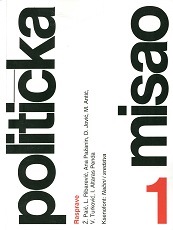Uključeni, isključeni, pozvani: politike državljanstva u postsocijalističkoj Europi i Hrvatskoj
The Included, the Excluded, and the Invited: Citizenship Policies in Post-Communist Europe and Croatia
Author(s): Igor ŠtiksSubject(s): Politics / Political Sciences
Published by: Fakultet političkih znanosti u Zagrebu
Keywords: Croatia; Citizenship; Post-communism; Nationalism; Minorities; Ethnic Democracy
Summary/Abstract: In this paper, I analyse Croatian citizenship policies in the post-communist context and argue that it is a very instructive case for understanding the citizenship conundrum that followed the end of the communist regimes in Central and Eastern Europe. Almost everywhere in post-communist Europe, and especially in the post-partition states formed after the collapse of socialist multinational federations, new citizenship legislation and administrative practices frequently resulted in creating three distinct categories of individuals:the included, the excluded, and the invited (more often than not ethnic kin abroad). I put a special focus on the transformations of the citizenship policies in Croatia and how the dynamic between the included, the excluded and the invited changed from nationalist Croatia in the 1990s to an EU-oriented Croatia in the 2000s. The analysis of Croatian citizenship policies allows me to suggest that post-Tuđman Croatia can be seen as an exemplary case of ethnic democracy according to the criteria defined by Sammy Smooha.
Journal: Politička Misao
- Issue Year: XLVII/2010
- Issue No: 01
- Page Range: 77-100
- Page Count: 24
- Language: Croatian

